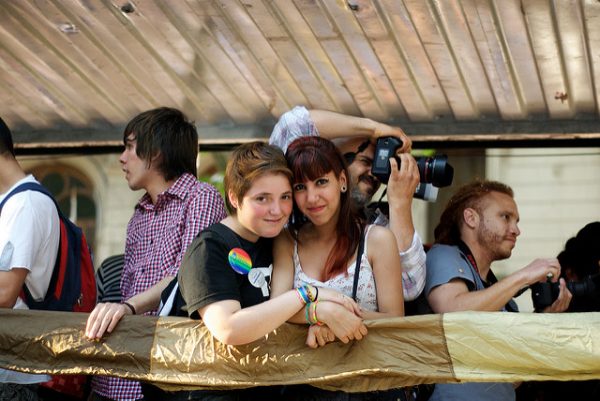
We often hear about women who “experiment” with their sexuality during college — they hook up with another woman just to “see what it’s like.” But focusing on the same-gender sexual experiences of college women disregards a large portion of women who never go to college, and a 2011 study argues that women with the lowest levels of educational achievement actually have the highest rates of same-gender sex. So how does same-gender sex function for less educated women, especially those with children or who are married to men?
Jamie Budnick conducted in-depth interviews with 35 women who indicated having at least one non-heterosexual experience. Budnick recruited these women based on their answers to supplemental questions in the Relationship Dynamics and Social Life Survey. Of these women, fewer than half attended any four year college and those who did went to schools that were not elite or highly selective.
While all of the women in the study reported some kind of non-heterosexual behavior, only 16% identified as something other than “straight.” Unlike studies of women at elite colleges, the women in Budnick’s study were far more likely to identify as “bisexual” than “queer,” as the term “queer” was often considered derogatory in their social circles. At the time of the interviews, some women remained in relationships with their children’s fathers or felt their same-gender sexualities were simply irrelevant after having children. Instead, having sex with other women — friends in many cases — was a safe and meaningful way to explore same-gender sex and desire.
Budnick explains that for many of these women, early motherhood forecloses the possibility to develop or claim an LGBTQ identity and instead these women prioritize their identity as a self-sacrificing parent. And although women in less privileged positions may have fewer choices in how they identify, Budnick argues they likely face less pressure to match their identities with their behavior than more privileged women. Thus, Budnick’s findings demonstrate the importance of social context for understanding same-gender desire and LGBTQ identity.

Comments